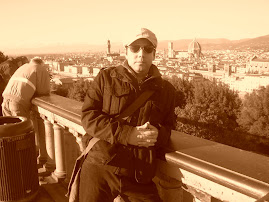
"In a movie, the villain can lay anybody he wants, have as much fun as he wants cheating, stealing, getting rich, and whipping servants. But you have to shoot him in the end."
Herman Mankiewicz (1897-1953). Screenwriter Columbia College 1917
I received this article from the Columbia University Alumni Association. For those that enjoy sharp wit, here's an interesting article about a Columbia Lion's contribution to 20th century film.
Herman Mankiewicz
The screenwriter Herman Mankiewicz who helped establish rapid-fire dialogue as a hallmark of Hollywood's early talking pictures is remembered first for co-authoring the script for Citizen Kane. Although he and director Orson Welles shared writing credit (and with it Kane's only Academy Award), many film historians today not only give Mankiewicz more credit for the script than Welles did, they give him more credit than they give Welles himself.
It was more than a decade before Kane that Mankiewicz spearheaded the movement of that whole Broadway style of wisecracking, fast-talking, cynical-sentimental entertainment onto the national scene, according to critic Pauline Kael. A former reporter and critic in New York, Mank had moved to California in 1926 to write for the silents. Having sharpened his wit and conversational skills at the famed Algonquin Round Table, he was ideally situated when the advent of sound created the need for skilled writers of dialogue. Over 25 years Mankiewicz wrote, co-wrote, or otherwise polished many popular films, more than occasionally without formal credit. His career was brought low by alcohol and gambling in the late 1930s, and while he never again reached his previous heights, the critical reception given to Kane afforded him the opportunity to write several more films before his death. At Columbia, Mankiewicz wrote for the Varsity Show, demonstrating early on the wit that would mark his screenwriting. He majored in English and German, briefly studying the former in graduate school as well. Mankiewicz�s younger brother Joseph followed him to Columbia and then to Hollywood, where he also became a successful screenwriter and, later, a director and producer.


No hay comentarios.:
Publicar un comentario